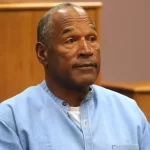New York appeals court overturns Harvey Weinstein’s 2020 conviction from landmark #MeToo trial
The post New York appeals court overturns Harvey Weinstein’s 2020 conviction from landmark #MeToo trial appeared first on Healthy Holistic Living.
In a startling turn of events, a recent ruling by New York’s highest court has reignited the spotlight on one of the most scrutinized legal battles in recent memory. A 4-3 decision has overturned a landmark verdict from 2020, unraveling the case of Harvey Weinstein and sending shockwaves through the realms of justice and public discourse.
The courtroom drama, which once captivated global attention, now unfolds with renewed vigor. Weinstein’s fall from grace, once hailed as a triumph for survivors of r*** and s** a*********, now faces a tumultuous twist, compelling a reevaluation of not just the case at hand, but the broader societal response to allegations of abuse and misconduct in positions of power.
As we delve into the nuances of this legal saga, it becomes evident that the repercussions extend far beyond the confines of a courtroom. The #MeToo movement, born from a groundswell of courage and solidarity, now faces a crucial juncture, confronting the complexities of justice, due process, and the enduring legacy of r*** culture.
Join us as we navigate through the intricacies of the Weinstein case, exploring the implications of the court’s decision, reflecting on the evolving landscape of r*** and s** a********* allegations, and charting a path forward in pursuit of accountability and healing.
The Court’s Decision
In a decision that sent shockwaves through legal circles, New York’s highest court overturned Harvey Weinstein’s 2020 r*** conviction. The court’s ruling, by a narrow 4-3 margin, pointed to what it deemed as “egregious” errors in the trial proceedings. Central to the court’s decision was the admission of testimony regarding uncharged, alleged prior acts, a move the majority deemed prejudicial to Weinstein’s case.
The crux of the court’s argument rested on the principle of fair trial procedures. It emphasized the need to avoid undue prejudice and ensure that defendants are judged solely on the charges brought against them. By allowing testimony about incidents not directly related to the charges, the court concluded that Weinstein was unfairly prejudiced, thereby warranting a new trial.
This decision not only marks a significant legal development but also reignites debates surrounding the #MeToo movement and the broader discourse on r*** and s** a*********. It raises questions about the balance between justice for survivors and the rights of the accused, shedding light on the complexities inherent in navigating misconduct allegations in high-profile cases.
Weinstein’s legal team hailed the decision as a victory for due process and defendants’ rights. Conversely, advocates for survivors expressed concern, fearing that the ruling could deter others from coming forward with their stories. The dissenting opinions within the court underscore the polarizing nature of the case, reflecting the ongoing tensions between competing interests of justice, fairness, and accountability. As the legal saga of Harvey Weinstein continues to unfold, this decision serves as a pivotal moment, prompting reflection on the intricacies of the judicial system and the enduring legacy of the #MeToo movement.
Reopening Old Wounds
The reverberations of the court’s decision extend far beyond the confines of legal proceedings, reopening old wounds for both Harvey Weinstein’s accusers and advocates of the #MeToo movement. For those who bravely stepped forward to share their experiences, the prospect of facing another trial brings forth a daunting wave of emotions.
Weinstein’s accusers, who had already undergone the arduous process of recounting their experiences in court, now face the prospect of reliving their trauma once again. The toll of testifying, of bearing witness to their most vulnerable moments in front of a scrutinizing audience, cannot be understated. The possibility of undergoing this ordeal anew serves as a harsh reminder of the enduring impact of r*** and s** a*********.
Moreover, the court’s decision rekindles broader conversations about justice and accountability. For many survivors, Weinstein’s trial symbolized a watershed moment, a triumph in the fight against impunity for perpetrators of s** a********* and r***. However, the overturning of his conviction threatens to erode the progress made, casting doubt on the efficacy of legal mechanisms in addressing systemic issues of power and abuse.
In the wake of the court’s ruling, advocates for survivors have voiced their concerns, highlighting the potential chilling effect it may have on future cases. The fear of not being believed, of facing backlash and scrutiny, looms large for survivors contemplating whether to come forward with their own stories. The decision to seek justice is fraught with uncertainty, compounded by the knowledge that the legal system is not always equipped to provide the closure and validation survivors seek.
As we grapple with the implications of Weinstein’s case, it becomes clear that the pursuit of justice is an ongoing journey, one that requires unwavering dedication and solidarity. Despite the setbacks, the voices of survivors remain resilient, their stories a testament to the power of speaking truth to power. In the face of adversity, they continue to advocate for change, forging ahead in the pursuit of a more just and equitable society.
Legal Perspectives
In the aftermath of the court’s decision to overturn Harvey Weinstein’s r*** conviction, legal experts and scholars offer contrasting viewpoints, underscoring the complexities inherent in navigating cases of s** a********* and r*** within the judicial system.
The court’s majority opinion emphasized the importance of upholding fair trial procedures and protecting defendants’ rights. Central to their decision was the notion that allowing testimony regarding uncharged, alleged prior acts unfairly prejudiced Weinstein’s case. By prioritizing the principle of due process, the majority underscored the need for impartiality and objectivity in adjudicating misconduct allegations.
Conversely, dissenting judges argued that the majority’s decision failed to adequately consider the broader context of Weinstein’s conduct. They contended that the testimony regarding uncharged acts was relevant in establishing a pattern of behavior and demonstrating Weinstein’s modus operandi. Moreover, they cautioned against perpetuating outdated notions of s** a********* and r***, emphasizing the importance of considering survivors’ experiences within a comprehensive framework of justice.
The court’s decision has far-reaching implications for future cases involving allegations of s** a********* and r***. It raises questions about the admissibility of evidence and the extent to which past conduct can be considered in assessing credibility and establishing guilt. As legal scholars grapple with these questions, the broader discourse on s** a********* and r*** continues to evolve, prompting reflection on the role of the judicial system in addressing systemic issues of power and abuse.
In navigating the complexities of Weinstein’s case, legal experts offer valuable insights into the intricacies of the law and the challenges inherent in adjudicating allegations of s** a********* and r***. Their perspectives underscore the need for ongoing dialogue and engagement, as we collectively strive towards a more just and equitable legal system.
Reflections on the #MeToo Movement
The overturning of Harvey Weinstein’s r*** conviction prompts profound reflections on the broader impact of the #MeToo movement, reshaping societal attitudes towards s** a********* and r*** and sparking crucial conversations about power, accountability, and justice.
Shifting Cultural Paradigms
Weinstein’s trial served as a catalyst for the #MeToo movement, emboldening survivors to come forward with their stories and holding powerful figures accountable for their actions. The movement’s unprecedented surge highlighted the pervasive nature of s** a********* and r*** across industries and underscored the urgent need for systemic change. What began as a series of allegations against Weinstein quickly snowballed into a global reckoning, exposing the prevalence of s** a********* and r*** in Hollywood and beyond. The courage of survivors who shared their experiences laid bare the entrenched power dynamics that enable abuse and exploitation to flourish unchecked.
Empowering Survivors
Central to the #MeToo movement is the empowerment of survivors, providing them with a platform to share their experiences and demand accountability. Weinstein’s conviction was celebrated as a milestone achievement, offering validation and closure to survivors who had long been silenced and marginalized. The trial sent a powerful message to survivors everywhere that their voices mattered and that perpetrators of s** a********* and r*** would be held accountable for their actions. It was a moment of triumph for those who had bravely spoken out, marking a significant step towards dismantling the culture of silence and impunity that has long shielded abusers from consequences.
Challenges and Controversies
However, Weinstein’s case also exposed the challenges and controversies inherent in prosecuting cases of s** a********* and r***. From legal hurdles to societal biases, survivors often face numerous barriers in seeking justice, highlighting the need for comprehensive reforms within the legal system and broader societal structures. The trial sparked debates about the burden of proof, the reliability of witness testimony, and the role of the media in shaping public perceptions of s** a********* and r*** cases. It laid bare the limitations of the legal system in addressing the complexities of s** a********* and r***, raising important questions about how best to support survivors and hold perpetrators accountable.
Continuing the Conversation
Despite the setbacks, the #MeToo movement continues to evolve, galvanizing efforts to combat s** a********* and r*** and promote gender equality. Weinstein’s case serves as a sobering reminder of the work that remains to be done, urging us to remain vigilant in our pursuit of a world free from s** a********* and r***. It has reignited conversations about consent, power dynamics, and the importance of creating safe and inclusive spaces for all individuals. As we reflect on Weinstein’s trial and its implications for the #MeToo movement, it becomes evident that our collective journey toward justice and equality is far from over. It is incumbent upon all of us to continue amplifying survivor voices, dismantling systemic barriers, and fostering a culture of respect and consent.
Moving Forward
As the legal saga surrounding Harvey Weinstein unfolds, the overturning of his r*** conviction prompts a critical examination of the path forward for survivors, advocates, and society at large. While the decision marks a setback in pursuing justice, it also serves as a catalyst for renewed determination and action.
In the wake of the court’s decision, Weinstein’s legal team prepares for a potential retrial, highlighting the ongoing legal battles that lie ahead. For survivors and prosecutors, navigating the complexities of the legal system remains a daunting task, fraught with uncertainty and challenges. The prospect of undergoing another trial can evoke a range of emotions, from frustration to fear, as survivors grapple with the prospect of reliving their trauma in a courtroom setting once again. Despite these challenges, advocates remain steadfast in their commitment to seeking accountability and ensuring survivors’ voices are heard.
Weinstein’s case underscores broader systemic issues surrounding s** a********* and r***, including power imbalances, institutional failures, and societal attitudes toward victims and perpetrators. Addressing these underlying issues requires a multifaceted approach that goes beyond individual cases to tackle root causes and implement meaningful reforms. From strengthening laws and policies to improving support services for survivors, there is a pressing need for concerted action at all levels of society.
A commitment to supporting survivor healing and recovery is central to the path forward. Weinstein’s case has shone a spotlight on the trauma endured by survivors of s** a********* and r***, highlighting the need for accessible and comprehensive support services. This includes mental health resources, counseling, legal assistance, and community support networks designed to empower survivors and help them rebuild their lives in the aftermath of trauma.
Despite the challenges posed by Weinstein’s case, advocacy efforts to combat s** a********* and r*** continue unabated. From grassroots activism to legislative advocacy, there is a growing movement dedicated to ending s** a********* and r*** and promoting a culture of consent and respect. Advocates play a vital role in shaping societal attitudes and driving meaningful change by amplifying survivor voices, raising awareness, and holding institutions accountable.
The aftermath of Weinstein’s trial demands our attention and requires us to confront the consequences. We cannot afford to ignore the impact of this trial and must act accordingly. We must stay proactive in our efforts to combat s** a********* and r***. The road ahead may be fraught with challenges, but it is also paved with opportunities for progress and transformation. By standing in solidarity with survivors, advocating for justice, and challenging systems of power and oppression, we can work towards creating a world where s** a********* and r*** have no place and every individual is treated with dignity and respect.
Practical Tips for Supporting Survivors
Supporting survivors of s** a********* and r*** is something anyone can do with a little care and understanding. Here are some everyday tips to help you be there for survivors:
1. Believe Them: When someone shares their experience with you, believe them. It takes courage to speak up, and your support can make a world of difference.
2. Listen Without Judgment: Sometimes, all a survivor needs is someone to listen. Offer a compassionate ear without jumping to conclusions or offering unsolicited advice.
3. Respect Their Space: Respect survivors’ boundaries and let them guide the conversation. Give them space to share as much or as little as they feel comfortable with.
4. Offer Practical Support: Offer to help with practical tasks like running errands, cooking meals, or looking after children. Sometimes, the smallest gestures can make the biggest impact.
5. Be Patient and Understanding: Healing from s** a********* and r*** takes time. Be patient and understanding, and let survivors know that you’re there for them whenever they need you.
6. Educate Yourself: Take the time to educate yourself about s** a********* and r*** and the impact it can have on survivors. The more you know, the better equipped you’ll be to offer support.
7. Avoid Blaming or Shaming: Avoid placing blame or making judgments about the survivor’s actions. Remember, it’s never the survivor’s fault, and they deserve your support and compassion.
8. Check In Regularly: Check in with survivors regularly to see how they’re doing. A simple text or phone call can go a long way in letting them know you care.
9. Encourage Self-Care: Encourage survivors to prioritize self-care and do things that bring them joy and comfort. Whether it’s taking a walk, practicing mindfulness, or spending time with loved ones, self-care is essential for healing.
10. Be an Ally: Stand up against s** a********* and r*** in your community and advocate for survivors’ rights. Use your voice to challenge harmful attitudes and behaviors whenever you can.
By following these simple tips, you can make a meaningful difference in the lives of survivors and contribute to creating a safer, more supportive world for everyone.
Forging Ahead with Compassion and Determination
The overturning of Harvey Weinstein’s r*** conviction has sparked profound reflection and renewed determination in the ongoing fight against s** a********* and r***. While the court’s decision may mark a setback in the pursuit of justice, it serves as a poignant reminder of the challenges that lie ahead and the importance of collective action.
Moving forward, it’s important to keep in mind that helping survivors isn’t limited to legal action or court cases alone. It involves building a society that values empathy, comprehension, and respect. We all have a part to play in supporting survivors and fighting against the power dynamics and oppressive systems that allow s***** a****** and r*** to exist.
By believing survivors, listening without judgment, and offering practical support, we can create safe and supportive environments where survivors feel empowered to share their stories and seek the help they need. Education, advocacy, and allyship are also essential components of the journey toward justice as we work together to dismantle harmful attitudes and behaviors and create a world where s** a********* and r*** have no place.
Let us stand in solidarity with survivors and advocate for their rights. We need to work towards a future where everyone is treated with dignity and respect. We can create a world where survivors are believed, supported, and empowered to heal and thrive.
The post New York appeals court overturns Harvey Weinstein’s 2020 conviction from landmark #MeToo trial appeared first on Healthy Holistic Living.










